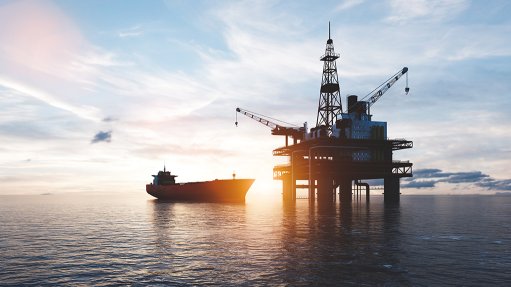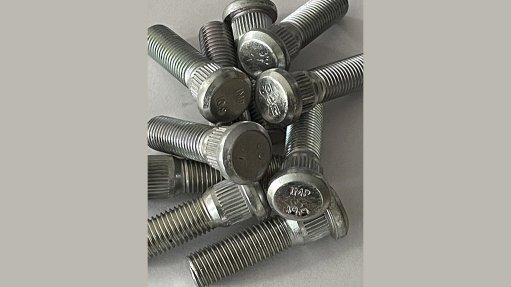Protectionism on the increase
Contrary to popular belief, economists are not oracles, and neither are they clairvoyants, even though they make frequent reference to their crystal-ball insights. They are mere trendspotters – no more, no less. Should you be interested in becoming a trendspotter, and by default a quasi- economist, you could find the answer in a recent Forbes article, “How to become a trendspotter”. Let me save you the investment in both time and effort – the answer lies but in a single word, ‘read’.
One constant in my working life has been to read what others tended not to read. Among such publications is the Government Gazette, which, even though it has migrated online and is available free of charge, has still not enticed hordes of readers.
If you had been reading the Government Gazette of late or glancing at the World Trade Organisation (WTO) website, you would have spotted the emergence of a worrying trend. It is quite the opposite of what it reminded me of. I’m not quite sure what made me think of it, but, as I started to read ‘safe’, my thoughts took me to a time when, instead of saying things were ‘cool’, one would say, “Safe, my mate”, while making a hand gesture. The hand gesture, you might recall, was in the form of a fist, with the two fingers on either side remaining extended. As I recall, an associated response of “Yes-well-no-fine” would likely follow from the person enquiring into your wellbeing.
But what you will find in the Government Gazette and on the WTO website is anything but well or fine – it is extremely worrying. But it has not been shared in the national media or reported on by economic commentators. I am, of course, referring to the marked increase in the number of safeguard notifications and investigations that have been initiated. A brief reminder: safeguards are a fair-trade remedy, which means a country that initiates a safeguard investigation does so against imported goods that are fairly traded. The imported goods are not dumped, and neither are their manufacture or subsequent export subsidised by the governments of the exporting countries.
Unlike dumping and antisubsidy (countervailing) investigations, safeguard investigations have to be notified to the WTO by the initiating country. The WTO then publishes a notice of the initiation of the safeguard investigation on its website.
What have you missed? Since May 15, South Africa, or rather the Southern African Customs Union, has initiated two safeguard investigations and a correction. The safeguard investigations relate to bolts with hexagon heads of iron or steel (June 19 and May 15) and U, I, H, L and T sections of iron or non-alloy steel of 80 mm or more and other angles, shapes and sections (June 19). Then there was the publication, for comment, of ‘Guidelines and Conditions Relating to the Extension of Safeguard Measures’ (May, 15). Prior to this, the last time a safeguard investigation was published, it related to threaded fasteners of iron or steel: bolt-end and screw studs, and was initiated on July 26, 2019
According to the WTO, in June (up to June 19), the Philippines launched three safeguard investigations: on aluminum zinc sheets, coils and strips; on prepainted galvanised iron and prepainted aluminum zinc; and on galvanised iron sheets, coils and strips (June 19). Turkey launched a safeguard investigation on polyethylene terephthalate chips (June 16). Ukraine launched a safeguard investigation on fresh-cut roses (June 12). Indonesia launched a safeguard investigation on carpets and other textile floor coverings (June 12). Turkey launched a safeguard investigation on staple fibres of polyesters (June 8).
It is quite evident that there is an increase in protectionism. Prior to the establishment of the WTO, countries would merely increase tariffs – rates of customs (import) duty. As the WTO has curtailed the use of tariffs, the measure of last resort has become safeguards.
Article Enquiry
Email Article
Save Article
Feedback
To advertise email advertising@creamermedia.co.za or click here
Press Office
Announcements
What's On
Subscribe to improve your user experience...
Option 1 (equivalent of R125 a month):
Receive a weekly copy of Creamer Media's Engineering News & Mining Weekly magazine
(print copy for those in South Africa and e-magazine for those outside of South Africa)
Receive daily email newsletters
Access to full search results
Access archive of magazine back copies
Access to Projects in Progress
Access to ONE Research Report of your choice in PDF format
Option 2 (equivalent of R375 a month):
All benefits from Option 1
PLUS
Access to Creamer Media's Research Channel Africa for ALL Research Reports, in PDF format, on various industrial and mining sectors
including Electricity; Water; Energy Transition; Hydrogen; Roads, Rail and Ports; Coal; Gold; Platinum; Battery Metals; etc.
Already a subscriber?
Forgotten your password?
Receive weekly copy of Creamer Media's Engineering News & Mining Weekly magazine (print copy for those in South Africa and e-magazine for those outside of South Africa)
➕
Recieve daily email newsletters
➕
Access to full search results
➕
Access archive of magazine back copies
➕
Access to Projects in Progress
➕
Access to ONE Research Report of your choice in PDF format
RESEARCH CHANNEL AFRICA
R4500 (equivalent of R375 a month)
SUBSCRIBEAll benefits from Option 1
➕
Access to Creamer Media's Research Channel Africa for ALL Research Reports on various industrial and mining sectors, in PDF format, including on:
Electricity
➕
Water
➕
Energy Transition
➕
Hydrogen
➕
Roads, Rail and Ports
➕
Coal
➕
Gold
➕
Platinum
➕
Battery Metals
➕
etc.
Receive all benefits from Option 1 or Option 2 delivered to numerous people at your company
➕
Multiple User names and Passwords for simultaneous log-ins
➕
Intranet integration access to all in your organisation

















